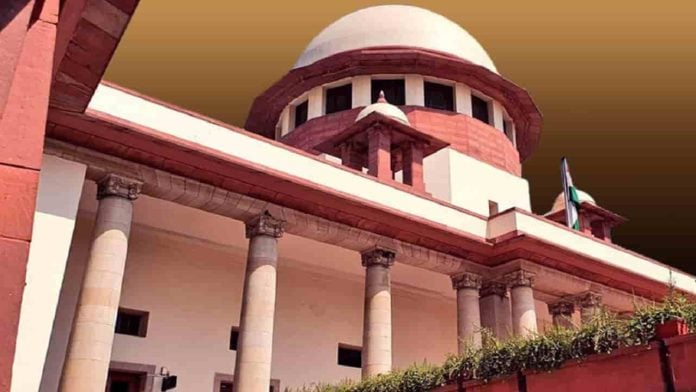The Central government and the Election Commission have told the Supreme Court that the delimitation process in Jammu and Kashmir cannot be challenged, once the orders have been issued by the Gazette of India.
The Ministry of Home Affairs filed the submissions on behalf of the Central government and the Union Territory of Jammu and Kashmir.
The response was filed on a batch of petitions challenging the setting up of Delimitation Commission in J&K, calling it unconstitutional.
The Bench of Justice Sanjay Kishan Kaul and Justice M.M. Sundresh had issued notice to the Central government and the ECI on the pleas further declaring increase in the number of seats in J&K from 83 to 90 as ultra vires the Constitution.
The Centre, seeking dismissal of the petition, termed it as nothing, but a frivolous attempt to challenge the orders of the Delimitation Commission.
It said the Delimitation Commission was set up two years before the instant writ petition was instituted.
It further said the Delimitation Commission has since, completed its exercise and its subsequent orders have also been issued via the Gazette of India.
As per the MHA, the petitioners had failed to justify the delay in raising the alleged concerns earlier by way of the instant plea and therefore, the same should be disposed of.
The MHA cited Section 60 of the Jammu and Kashmir Reorganization Act, 2019 and said the number of seats in the Legislative Assembly of the Union Territory of Jammu and Kashmir were increased from 107 to 114, including 24 in Pakistan-occupied Kashmir.
It added that a special provision as Section 62 had been incorporated in the Act, with regard to the readjustment of Parliamentary and Assembly constituencies of Jammu and Kashmir on the basis of 2011 Census, thus denying the contention of the petitioner that the increase in number of Assembly seats was unconstitutional.
The Secretary of ECI, while filing its reply before the Apex Court, submitted that in terms of Section 10(2) of the Delimitation Act, the Delimitation Orders which have been published vide Gazette Notifications and have taken effect, have acquired the force of law.
It added that before the final order was published, a number of public sittings were held to afford full opportunity to members of the public to make oral and written submissions to the Delimitation Commission.
As per the ECI, there was a bar on judicial interference under Article 329(a) of the Constitution, regarding the validity of any law relating to the delimitation of constituencies.
The Commission cited the Meghraj Kothari vs Delimitation Commission case, in which the Apex Court had ruled that once the order was published in the Gazette of India, such an order cannot be reagitated before a Court of Law. It pointed out that similar observations were made by the Supreme Court in Assn of Residents of Mhow (ROM) vs Delimitation Commission of India and J&K National Panthers Party vs Union of India cases.


